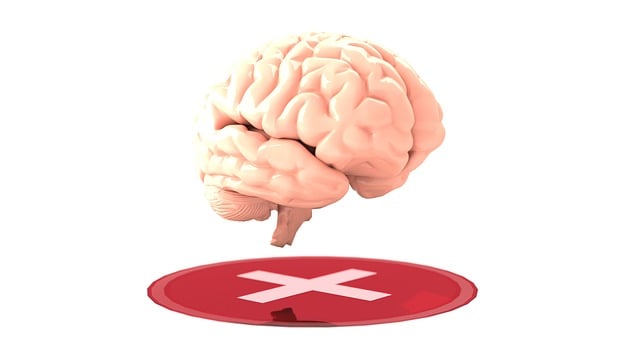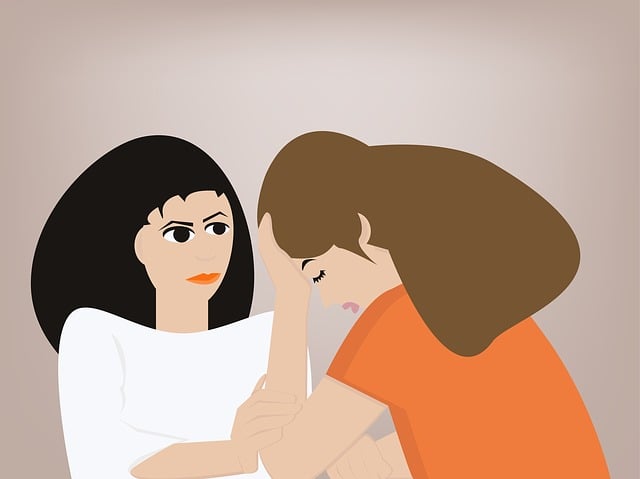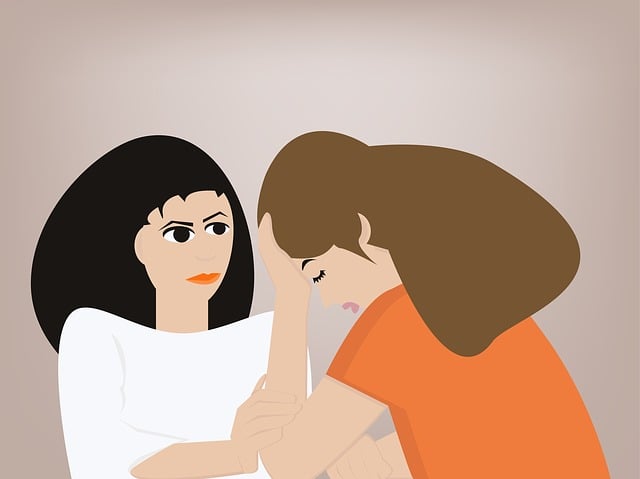Colorado Springs domestic violence therapy focuses on teaching effective coping skills to aid individuals' trauma recovery. Through cognitive reframing, relaxation exercises, and tailored stress reduction methods, survivors gain resilience and emotional control. This holistic approach, emphasizing cultural sensitivity and techniques like expressive writing, empowers clients with tools for long-term mental well-being. By integrating regular self-care practices into daily routines, individuals build stability and emotional intelligence, fostering recovery and personal growth in Colorado Springs domestic violence therapy settings.
Coping skills development is a pivotal aspect of recovering from domestic violence, offering individuals tools to navigate trauma and build resilience. This article explores the significance of coping mechanisms in healing processes, providing insights into understanding and identifying personal strategies. We delve into effective strategies for managing trauma, highlighting the role of Colorado Springs Domestic Violence Therapy in empowering survivors through specialized coping skill teachings. Additionally, it discusses implementing sustainable healthy habits for long-term emotional wellbeing.
- Understanding Coping Skills and Their Significance in Domestic Violence Recovery
- Identifying Personal Coping Mechanisms: A Journey Inward
- Building Resilience: Effective Strategies for Coping with Trauma
- The Role of Colorado Springs Domestic Violence Therapy in Teaching Coping Skills
- Implementing and Sustaining Healthy Coping Habits for Long-Term Wellbeing
Understanding Coping Skills and Their Significance in Domestic Violence Recovery

Coping skills are essential tools for individuals recovering from domestic violence, offering strategies to navigate and manage challenging situations. In the context of Colorado Springs Domestic Violence Therapy, understanding these skills is pivotal as they empower survivors to cope with trauma, stress, and emotional distress effectively. The process involves learning a range of techniques, from cognitive reframing to relaxation exercises, which help individuals recognize and challenge negative thought patterns and promote emotional well-being.
Developing healthy coping mechanisms plays a significant role in recovery by enhancing resilience and mood management. By acquiring these skills, survivors can reduce the impact of reliving traumatic events and implement stress reduction methods tailored to their unique needs. This journey towards healing enables them to rebuild their lives, fostering a sense of safety and empowerment.
Identifying Personal Coping Mechanisms: A Journey Inward

In the journey towards healing and personal growth, identifying your unique coping mechanisms is a powerful step. This introspective process involves delving into one’s inner world to uncover strategies that have been unconsciously employed to navigate life’s challenges. Many individuals struggling with issues like those often seen in Colorado Springs domestic violence therapy may not be fully aware of their inherent coping abilities. By exploring personal experiences, emotions, and thoughts, individuals can identify patterns and gain a deeper understanding of their mental resilience.
Cultural sensitivity in mental healthcare practice plays a significant role here as it ensures that coping strategies are tailored to the individual’s background and experiences. Communication strategies, such as expressive writing or mindfulness practices, can be introduced to enhance self-awareness and provide healthy outlets for processing emotions. Burnout prevention is also closely tied to this process, as learning to recognize and employ effective coping mechanisms can significantly reduce stress and promote long-term mental well-being.
Building Resilience: Effective Strategies for Coping with Trauma

Building resilience is a crucial aspect of coping with trauma and recovering from challenging experiences, such as domestic violence. Colorado Springs domestic violence therapy emphasizes that developing effective coping strategies can empower individuals to navigate their healing journey with strength and adaptability. One key strategy involves incorporating self-care practices into daily routines. This includes engaging in consistent self-care routine development for better mental health, which can range from practicing mindfulness and deep breathing exercises to adopting a balanced diet and regular physical activity.
By prioritizing self-care, individuals can enhance their mood management skills, making it easier to regulate emotions and maintain a sense of equilibrium. These practices create a protective buffer against the lingering effects of trauma, fostering a sense of safety and empowerment. As individuals cultivate resilience through self-care, they gain valuable tools to navigate life’s challenges, ensuring they emerge stronger and better equipped to handle future stressors.
The Role of Colorado Springs Domestic Violence Therapy in Teaching Coping Skills

Colorado Springs Domestic Violence Therapy plays a pivotal role in empowering individuals to develop crucial coping skills. Through specialized programs and individualized approaches, therapists help clients navigate the complexities of trauma and abuse. This therapy isn’t just about healing; it equips participants with effective strategies to manage stress, regulate emotions, and build resilience. The process involves teaching social skills training, encouraging positive thinking, and offering burnout prevention strategies for healthcare providers—all essential components in fostering personal growth and well-being.
By delving into these aspects, Colorado Springs Domestic Violence Therapy creates a safe space for survivors to heal and develop adaptive coping mechanisms. This holistic approach not only addresses immediate needs but also prepares individuals to face future challenges head-on, ultimately enhancing their overall quality of life.
Implementing and Sustaining Healthy Coping Habits for Long-Term Wellbeing

Developing healthy coping habits is a vital part of maintaining long-term mental wellness. These habits are particularly crucial for individuals who have experienced trauma or challenges like those seeking Colorado Springs domestic violence therapy. Building resilience and effective coping strategies enables people to navigate difficult situations and protect their emotional intelligence.
Regular self-care practices, such as meditation, exercise, journaling, and spending time in nature, can significantly contribute to overall mental wellness. These activities provide an outlet for stress relief, allow individuals to process emotions, and foster a sense of calm. By integrating these coping skills into daily routines, individuals create a sustainable foundation for emotional stability, even during challenging life periods.
Coping skills development is a pivotal aspect of recovering from domestic violence. By understanding the significance of these skills, identifying personal mechanisms, building resilience, and implementing healthy habits, individuals can navigate their journey towards healing. Colorado Springs Domestic Violence Therapy plays a crucial role in teaching effective coping strategies, enabling clients to sustain long-term wellbeing and foster a resilient mindset. Through tailored approaches and supportive environments, this therapy empowers folks to transform trauma into triumph.














